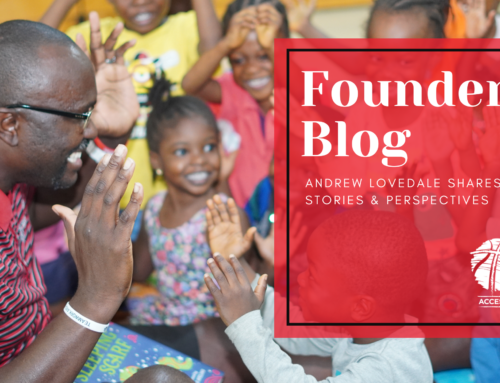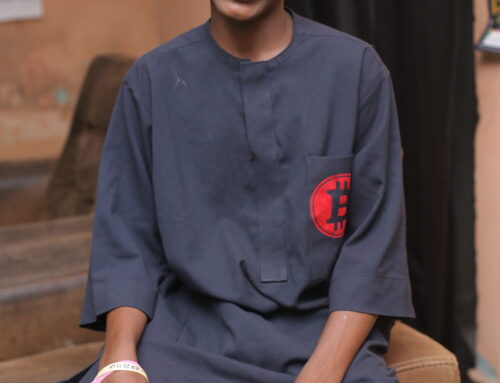Hidden Victims of COVID-19 and Our Shared Future
How we handle COVID-19 will significantly affect our shared future if we neglect the fact that our children are also profoundly impacted by this crisis. The solution to the effects of COVID-19 is two-fold: We need to find a way to flatten the curve and bring healing to the land, but we also have a shared responsibility to help prepare the next generation to handle adversity in their lifetime. They are watching as their freedoms have become limited, their spaces invaded by adults, and their learning halted. In short, children, especially those living in poverty, are hidden victims and should not be ignored.
At A2S, the children who attend our After School Academy belong to about 50% of Nigeria’s population who live on less than $1.90 a day, the most living in absolute poverty of any country in the world. On a typical day, they are mostly feeding hand to mouth, and during a time of crisis, these children will struggle disproportionately. Prior to COVID-19, 13.2 million children were already out of school in Nigeria, the most in the world. And now, their somewhat privileged peers who had access to the country’s primarily paralyzed educational system join them at home with lack of access to the internet, lack of basic necessities, lack of electricity, and all mostly within spaces the size of a dining room in the U.S.. Any progress made in recent times becomes seriously challenged and the health of our shared future on the line unless we find ways to continue meeting the needs of our children during a time of crisis and in harsh environments.
It is so easy for the unspoken victims of a crisis to be the children because, naturally, we believe their needs are woven into our abilities as adults to function. While this is somewhat true, the impact of our collective failure to focus on how children adapt to and overcome this crisis might not show immediately, but it will have a long-term effect on their growth and development. In Nigeria, a lot of our youth live in homes where parents cannot help them with homework because they did not further their education. There is no internet, so they do not have access to online learning tools. This afternoon in my backyard, I showed my son how to make a car using can covers, skewers, a nail, and a shoebox. He looked unsure as I explained to him that when I was growing up, toys were almost non-existent, and I had to make my own. Like me, children in Nigeria play outside, creating toys as a way to escape the heat that lingers inside their homes due to lack of electricity. In the case of our kids from the After School Academy, all 240 of them go straight to the After School Academy from school, where they get a hot meal, get help with homework, play with friends, and stay safe from the streets. The stay at home order in Nigeria takes away outlets that allow the children to cope daily and cripples the very few support systems that exist to serve them.
At A2S, we have worked hard to help our kids adjust and ensure that they do not come away from this as casualties. Each child was sent home with a month’s worth of food and school work. These measures mean that parents are not under pressure to break “stay at home” orders to provide, and the children are enjoying family time with parents who are usually out hustling most of the day. Our staff in Nigeria are currently working from home and have turned their homes into call centers. The population we serve cannot afford smartphones, so imagine trying to solve a math or science problem over a phone call. The kids have coloring pages of themselves and familiar spaces that have served as safe havens so they have something to look forward to after COVID-19. The reality is that this is only 240 kids. What about the thousands who live within our communities and around the country? For all, prayer has become their rock, a message of hope on which they hope to build our shared future. Helping them get through this is critical.
The words of President Ronald Regan that “The future doesn’t belong to the light-hearted. It belongs to the brave,” and our unwavering hope and love amid this crisis are messages that each child needs to hear. For children who come from struggling backgrounds, they need to understand that this hope can never be empty and powerful words can shape stories. They might lead within spaces where our leaders have failed. They can be creative in enclosed spaces. For those who come from privileged backgrounds, this is an opportunity for them to learn the value of sacrificial giving and selflessness. And no matter where you are from, love is the ultimate. To ignore their needs and to not deliver a message through our exemplary living will leave them as the hidden victims of this crisis, coming away with wounds that continue to open up throughout a lifetime, instead of heal. Ultimately, a creative consciousness that protects and feeds the dreams of our children will help and sustain our shared future.
A2S President and Founder,

Andrew Lovedale
If you would like to give toward A2S COVID-19 relief efforts and the dreams of our Nigerian children and their communities, visit https://donate.a2sfoundation.org/

 .
. 
 .
. 
 .
. 






















